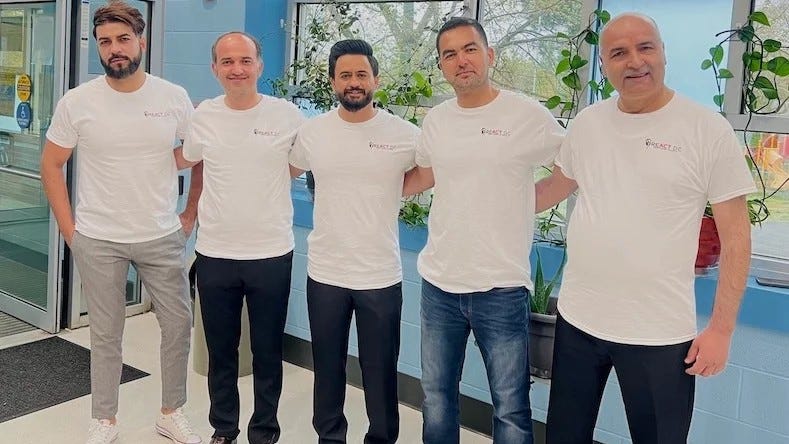
A non-profit providing assistance to recently arrived Afghans has expanded its efforts to help the refugees as they settle into their new lives in the United States.
“We started as military spouses and veterans who were watching the Afghan humanitarian crisis evacuation unfold last fall and wanted to do something to help,” said Navy spouse Amy Marden, chief executive officer of REACT DC.

Then non-profit formed last August as an informal Facebook group where Marden and others came together to respond to the humanitarian crisis in Afghanistan following the withdrawal of American troops from that country after 20 years. The group grew from roughly 20 to around 900 members during its first 72 hours.
“It was an amazing response,” said Marden.
The group soon became an established non-profit and began mapping out the services it would offer to Afghan refugees coming to the United States.
“We have Afghan newcomers working on our staff,” she added.
Other REACT DC volunteers served on cultural support teams while deployed to Afghanistan.
Marden said she is comfortable with getting set up in a new area and thought she could put what she has learned about relocating to work to help the Afghan newcomers.
Over the past year, REACT DC has provided supplies for setting up 60 homes – everything from bedding to pots and pans – and full resettlement support to 12 families.
“That’s doing everything an agency would do,” she explained. “That’s supporting their housing and getting their kids enrolled in school and finding jobs.”
REACT DC currently supports 400 people a month by providing a whole range of social services and employment support. The non-profit has even set up an employment website. The career pathway and training portal has over 100 free education courses in job training and readiness.
“We have an employment department now that their full-time job is to help people get jobs, which remains the long-lasting issue,” explained Marden. “Even after people are settled in their housing, how do we take all the skills and experience they have from their life in Afghanistan and translate that to the U.S.”
Many of the Afghan newcomers also need American sponsors, she noted.
“We have a sponsorship program that allows everyday Americans to step in and help a family on that road to self-sufficiency,” said Marden. “They desperately need that help.”
In March, REACT DC joined a broad coalition of veteran service organizations and Afghan-American organizations to advocate passage of the Afghan Adjustment Act by Congress. The legislation would allow certain Afghan evacuees to apply for permanent status after one year of being paroled into the country. It would relieve the immediate burden on the special immigrant visa-holders and the asylum process, both of which have hundreds of thousands of total cases in their backlog.
“It’s really hard to make a new life for yourself and focus on what your next year or two years or five years are going to look like when you don’t have real status,” she said.
“We, unfortunately, have a lot of people we are working with, even people on our staff, who came here and left their entire families in Afghanistan and are still trying to get them here quickly,” Marden added.
To learn more about REACT DC and how to get involved, visit here.
“Afghans were our allies in the war effort for the last 20 years,” she said.
Reach Julia LeDoux at Julia@connectingvets.com.


